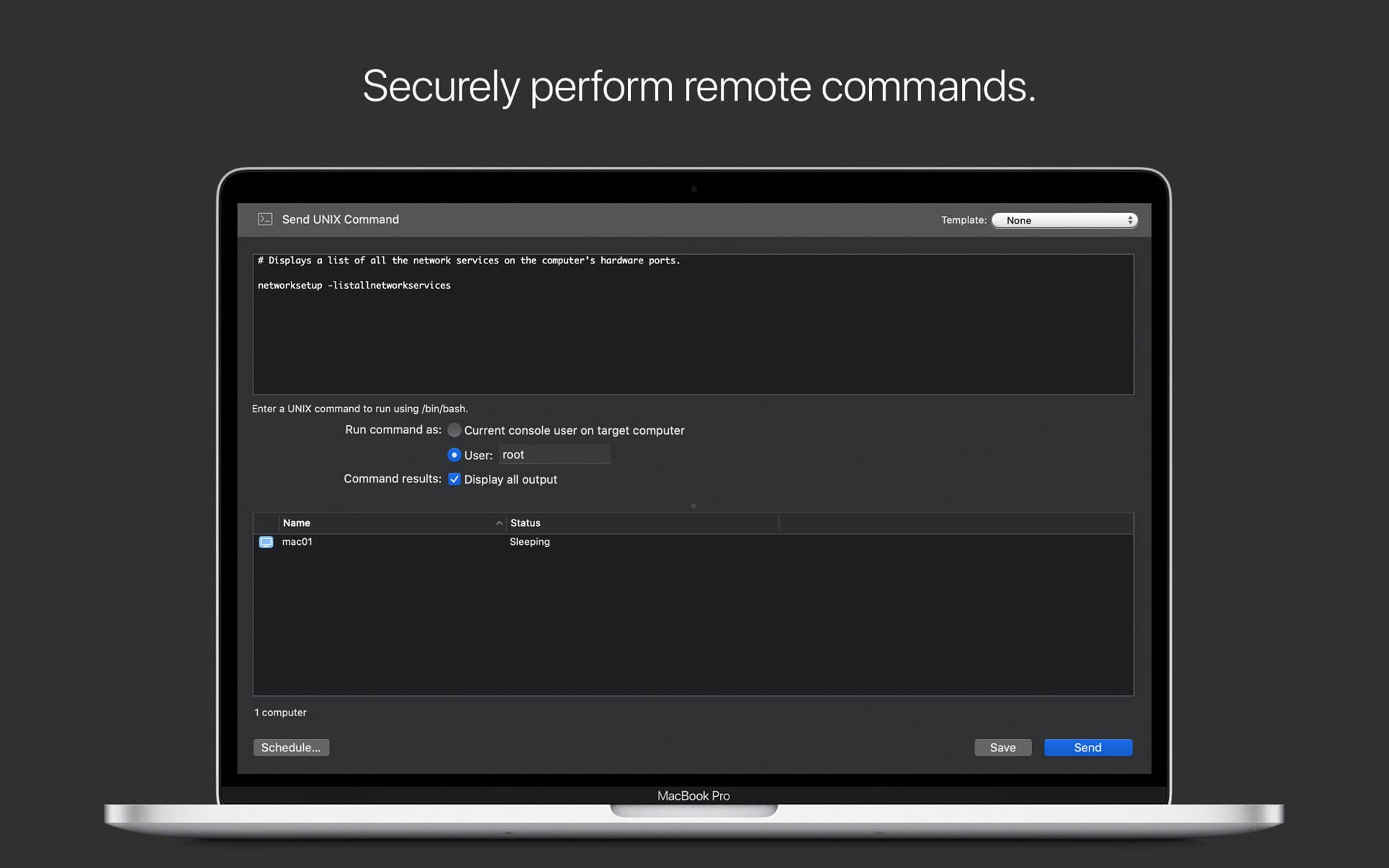Mastering IMac Remote Desktop: The Ultimate Guide To Seamless Remote Access
Let’s get real here—remote work has become the norm, and having the right tools is crucial. One of the most powerful features you can harness is iMac Remote Desktop. Whether you're a tech enthusiast, a professional on the go, or just someone who wants to access their iMac from anywhere, this guide will walk you through everything you need to know about iMac remote desktop solutions. So buckle up, because we’re diving deep into the world of remote access.
Now, before we jump into the nitty-gritty, let me ask you something—how frustrated have you been trying to access your files or applications on your iMac when you're miles away? Yeah, I get it. It's like wanting to grab your favorite snack but realizing it's locked in a cabinet with no key. But guess what? iMac Remote Desktop is the digital key you’ve been searching for.
This article isn’t just about throwing random info at you. We’re going to break it down step by step, from setting up remote access to troubleshooting common issues. By the end of this, you’ll feel like a tech wizard who can access their iMac from anywhere in the world. Ready? Let’s go!
- Sarah Jessica Parker Weight The Real Story Behind Her Iconic Body
- Chloe And Matt Leak The Untold Story Behind The Viral Sensation
What Exactly is iMac Remote Desktop?
Alright, so you’ve probably heard the term "iMac Remote Desktop" thrown around, but what does it really mean? Simply put, iMac Remote Desktop allows you to control your iMac remotely as if you were sitting right in front of it. Imagine being at a coffee shop and needing to access a file on your home computer—no problem! With iMac Remote Desktop, you can do just that.
But here’s the kicker—remote access isn’t just about convenience. It’s about efficiency. You can run applications, transfer files, and even manage multiple systems from a single device. For businesses, this means saving time and money by streamlining operations. For individuals, it means having the freedom to work wherever life takes you.
Why Should You Care About iMac Remote Desktop?
Let’s face it—life gets busy, and sometimes you need access to your iMac when you’re not physically near it. Whether you’re traveling, working from home, or just chilling on the couch, iMac Remote Desktop gives you that flexibility. Here are a few reasons why it’s worth your attention:
- Maruchan Ramen Recall What You Need To Know About This Spicy Situation
- Is Adnan Syed Married The Truth Behind The Podcast Sensation
- Flexibility: Work from anywhere without compromising productivity.
- Security: Access your files securely with encryption and authentication.
- Cost-Effective: Save money by avoiding expensive hardware upgrades.
- Collaboration: Share screens and collaborate with others in real-time.
And let’s not forget the peace of mind that comes with knowing you can always access your iMac, no matter where you are. Now that’s something worth caring about, right?
Setting Up iMac Remote Desktop: The Basics
Alright, let’s get down to business. Setting up iMac Remote Desktop might sound intimidating, but trust me, it’s easier than you think. The first step is enabling Screen Sharing on your iMac. Here’s how you do it:
Go to System Preferences > Sharing > Check the box for Screen Sharing. Boom! You’re halfway there. Now, you’ll need a client app on the device you’re using to connect. There are plenty of options out there, but Apple’s built-in Screen Sharing app is a solid choice.
But wait—what if you want more advanced features? That’s where third-party apps come in. Tools like Microsoft Remote Desktop, TeamViewer, and LogMeIn offer enhanced functionality and cross-platform compatibility. It’s like upgrading from a skateboard to a Tesla—same basic concept, but with way more power.
Tips for a Smooth Setup
Here are a few pro tips to ensure your setup runs like a well-oiled machine:
- Use a Strong Password: Security should always be a priority. Make sure your iMac is protected with a strong, unique password.
- Check Your Network: A stable internet connection is key to a seamless remote experience. If your Wi-Fi is acting up, consider switching to Ethernet.
- Keep Software Updated: Regular updates not only improve performance but also patch security vulnerabilities.
And don’t forget to test your setup before you really need it. Nothing’s worse than realizing something’s not working when you’re already in a pinch.
Exploring iMac Remote Desktop Solutions
Now that you’ve got the basics down, let’s explore some of the top iMac remote desktop solutions available. Each option has its own strengths, so it’s important to choose the one that best fits your needs.
Apple’s Built-In Screen Sharing
If you’re all about keeping things simple, Apple’s built-in Screen Sharing app is a great place to start. It’s free, easy to set up, and works seamlessly with other Apple devices. Plus, it integrates with iCloud for added convenience.
Microsoft Remote Desktop
For those who need cross-platform compatibility, Microsoft Remote Desktop is a solid choice. It supports Windows, macOS, iOS, and Android, making it a versatile option for mixed environments.
TeamViewer
TeamViewer is another popular option, known for its ease of use and robust feature set. It’s great for remote support, file transfer, and even unattended access. Plus, the free version is more than enough for personal use.
Advanced Features of iMac Remote Desktop
Once you’ve got the basics down, it’s time to explore some of the advanced features that take iMac Remote Desktop to the next level. These features aren’t just bells and whistles—they’re game-changers.
File Transfer
Transferring files between your iMac and remote device has never been easier. Most remote desktop solutions allow you to drag and drop files directly, saving you the hassle of using cloud storage or email attachments.
Unattended Access
Imagine being able to access your iMac even when you’re not physically present. Unattended access lets you do just that, making it perfect for remote troubleshooting or running background tasks.
Multi-Monitor Support
If you’re a power user with multiple monitors, you’ll appreciate the ability to extend your desktop across all of them. It’s like having a virtual workspace that follows you wherever you go.
Security Considerations for iMac Remote Desktop
Security should always be a top priority when it comes to remote access. After all, you’re essentially opening a door to your iMac from anywhere in the world. Here are a few security best practices to keep in mind:
- Enable Two-Factor Authentication (2FA): Adding an extra layer of security makes it much harder for unauthorized users to gain access.
- Use Encryption: Ensure that your connection is encrypted to protect sensitive data from prying eyes.
- Limit Access: Only allow trusted devices and users to connect to your iMac.
Remember, security isn’t just about protecting your data—it’s about protecting your peace of mind. Take these steps seriously, and you’ll sleep better at night knowing your iMac is safe.
Troubleshooting Common Issues
Even the best-laid plans can hit a snag now and then. If you’re having trouble with your iMac Remote Desktop setup, don’t panic. Here are a few common issues and how to fix them:
Connection Problems
If you’re having trouble connecting, check your network settings first. Make sure both devices are on the same network and that there are no firewalls blocking the connection.
Slow Performance
A slow connection can be frustrating, but there are ways to speed things up. Try reducing the screen resolution or switching to a wired connection for better performance.
Authentication Errors
If you’re getting authentication errors, double-check your credentials and make sure 2FA is properly set up. It’s also a good idea to restart both devices to clear any cached data.
Real-World Applications of iMac Remote Desktop
So, how exactly can you use iMac Remote Desktop in the real world? The possibilities are endless. Here are a few examples:
Remote Work
With more people working from home, iMac Remote Desktop has become an essential tool for staying productive. Whether you’re attending virtual meetings or collaborating with team members, it’s a game-changer.
Education
Teachers and students alike can benefit from iMac Remote Desktop. It allows for remote learning, screen sharing, and even virtual labs. The educational landscape is evolving, and remote access is at the forefront of this change.
Business Operations
For businesses, iMac Remote Desktop offers a way to streamline operations and improve efficiency. From remote support to data management, it’s a valuable asset for any organization.
Conclusion: Unlocking the Power of iMac Remote Desktop
So there you have it—everything you need to know about iMac Remote Desktop. From setting it up to exploring advanced features and troubleshooting common issues, this guide has got you covered. Remember, the key to mastering iMac Remote Desktop is understanding your needs and choosing the right solution for your situation.
Now, here’s the thing—I want you to take action. Whether it’s setting up remote access for the first time or exploring new features, don’t be afraid to dive in and experiment. And if you found this article helpful, don’t forget to share it with your friends and colleagues. Who knows? You might just help someone else unlock the power of iMac Remote Desktop too.
Table of Contents
- What Exactly is iMac Remote Desktop?
- Why Should You Care About iMac Remote Desktop?
- Setting Up iMac Remote Desktop: The Basics
- Exploring iMac Remote Desktop Solutions
- Advanced Features of iMac Remote Desktop
- Security Considerations for iMac Remote Desktop
- Troubleshooting Common Issues
- Real-World Applications of iMac Remote Desktop
- Conclusion: Unlocking the Power of iMac Remote Desktop
And there you go—a comprehensive guide to mastering iMac Remote Desktop. Now go forth and conquer the world of remote access!
- Katmovies18com Your Ultimate Destination For Latest Movies And Entertainment
- Katty Kay Ex Husband The Untold Story You Need To Know

iMacRemote 5 Minutes with Joe

Best remote desktop app mac eidax

Remote Control functionality to control new iMac MacRumors Forums